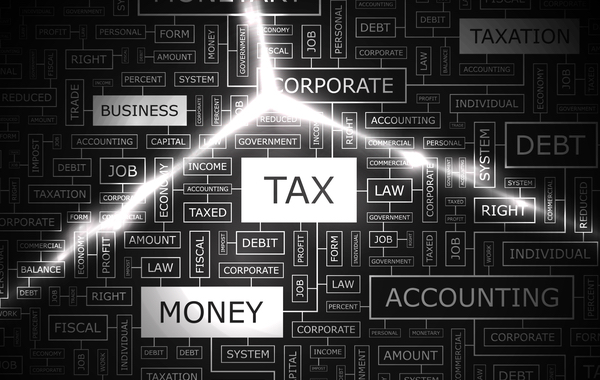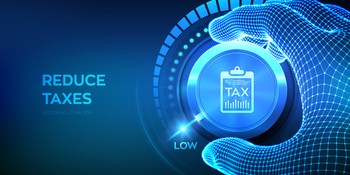
Tax liability is the amount of tax an individual or company must pay for the year. Taxpayers are required to pay income taxes to the government.
More...
You've got a lot on your plate. And it's hard to keep track of everything you need to do. Taxes are no exception.
As the tax year comes to a close, many people might be wondering what they will owe in taxes.
Tax season is an expensive time for many people, but there are ways to plan and prepare that can help reduce the amount you owe.
By understanding your current tax bracket and the tax brackets that will affect the following year, you can plan and minimize your tax obligation.
With proper financial planning and bookkeeping habits, you can get back some of the money you put in throughout the year.
Tax planning is the process of minimizing the amount you owe by reducing your taxable income.
If you're looking to save some money on your taxes this year, this post is for you. Read on to find the essential tips for minimizing your tax liability.
So What Is Tax Liability?
Tax liability is any tax debt you owe to a taxing authority.
Therefore, your tax obligation includes your income tax, capital gains tax, self-employment tax, and any penalties or interest.
Moreover, the United States has a progressive income tax system. The more money you make, the higher the percentage of income you pay in taxes.
With this in mind, your total tax responsibility is the sum of state and federal income taxes you owe.
Important to realize, your tax obligation includes property tax, sales tax, and other levies.
Whether you owe a small or large amount of taxes depends on how much money you make.
The United States government has set up a system of brackets to determine your tax burden.
In reality, taxes aren't just levied at the end of the year when you fill out your tax return; they're imposed throughout the year as you earn money.
The Importance of Financial Planning |
|---|
Financial planning is essential because it can help you save money. |
Planning for your future is important! You get to have more control over the way you live instead of being stuck in situations where you are always concerned about money. |
To be wise with money, you need to know where your money is coming from and going. |
Financial planning is the process of managing your finances to reach a goal. |
The goal can be anything: an education, buying a house, saving for retirement, a vacation, or even just having extra money for emergencies. |
The Internal Revenue Service
The IRS wants you to make intelligent tax savings decisions. It is essential to understand how your investments can impact your tax liability.
At the same time, people often focus too much on their tax liabilities and not enough on planning for them in advance.
Even if you are familiar with taxes, the tax code can get complicated.
While you can estimate your tax liability at the end of the year and see where you stand, there are steps you can take to make sure that your financial situation is running smoothly.
Some of these tips below may help reduce your liabilities, while others will help you save money in the long run.
Header | 25 Tax Tips for Individuals |
|---|---|
1 | Organize your documents |
2 | Avoid penalties for underpayment of estimated taxes |
3 | Time your mutual fund investments |
4 | Offset capital gains with capital losses |
5 | Optimize the tax savings from allowable deductions |
6 | Use a Health Savings Account (HSA) |
7 | Be strategic when selling any property |
8 | Optimize your tax deductions |
9 | Contribute to a 529 plan |
10 | Consider tax-exempt municipal bonds |
11 | Make charitable donations |
12 | Employ a tax-friendly social security plan |
13 | Hold your investments longer |
14 | Get a tax credit for higher education |
15 | Contribute to an IRA |
Header | |
|---|---|
16 | Mitigate the effect of the Alternative Minimum Tax (AMT)on your tax liability |
17 | Manage your cash flow by projecting when your tax payments are required |
18 | Use a Flexible Spending Account (FSA) |
19 | Take advantage of any tax credits |
20 | Mitigate possible future estate taxes to optimize the amount left to your beneficiaries or charities |
21 | Use the correct filing status |
22 | Write off your business travel expenses |
23 | Keep abreast with changes in the tax code |
24 | Get help from a tax professional |
25 | Lower any potential future years’ tax liabilities |

What Is Tax Minimization?
Tax minimization is the process of reducing your tax bill by taking advantage of all tax deductions and credits.
It can be a complicated task to identify which deductions and credits you're eligible for, but the effort is worth it when you see your tax bill shrink.
Tax minimization is possible by investing in various assets that are not subject to tax.
Taxes are not only an expense of doing business, but they are also a form of economic regulation.
If you don't want to pay tons of taxes on your income, it is vital to know your options before the end of the year to determine your best course of action.
How Can Proper Financial Planning Help With Tax Minimization?
You can save for retirement and minimize your tax liability by taking advantage of tax-advantaged investments.
You must save for retirement while the government still allows you to do so.
To maximize your tax benefits, it is best if you contribute to a retirement account with pre-tax dollars.
One of the most popular retirement plans among investors is the 401(k) plan.
When you have a 401(k) plan, you can contribute to it during the year and then receive a tax break on those contributions.
Retirement is a far-off concept, but don't put it off any longer.
Therefore, saving now could bring you a whole new level of financial security that you'll need as you age.
What are the Different Strategies for Maximizing Your Tax Savings?
There are many strategies for maximizing your tax savings, but knowing which method is best for your individual needs is consequential.
First, start by understanding the difference between deductions and exemptions.
Next, you can maximize your savings by choosing appropriate retirement accounts and healthcare benefits.
Equally important, some of the best practices are donating to charities, investing in tax-free securities, and maximizing your retirement contributions.
Another strategy is to put off taking Social Security payments or withdrawing from your IRA until age 70 to take advantage of the delayed-retirement credit that's available.
Tax savings are not always the same. Many different strategies can help you maximize your tax savings.
Ultimately, the most straightforward ways are to put more money into your retirement accounts, make sure you're getting the most out of your 401(k) or any other retirement plan. And lower the amount you spend on things you don't need immediately.
Tax Preparation and Filing
Tax law states that you must file federal tax returns, along with any state returns you have to file.
To prepare taxes and file your tax return, you need to gather several things.
The first thing you need to know is how to report your income. Self-employed? The IRS needs to know!
In like manner, the W-2 form that you receive from your employer is the basis for calculating how much income you'll report.
You should also have copies of your business records for the previous year.
Not to mention, you should also have your profit and loss statement and other related statements.
Planning is always the best way to avoid a last-minute scramble. Therefore, create a tax checklist for all the essential documents you need before seeing your tax specialist.
In The Final Analysis
The tax system impacts most Americans ' lives from payroll taxes to penalties and interest on unpaid taxes.
When it comes to investing and tax planning, understanding the specifics of tax law can help individuals and business owners better manage their finances.
By understanding the consequences of potential mistakes, individuals and business owners can minimize the amount of taxes they pay.
Taxes are never pleasant, and it's hard not to feel burdened when you pay out a lot of money for them.
However, you can minimize your tax liability. To do so, be sure to put a plan in place and start now. Set a goal for what you want to save, and work towards it.
If you want to save on taxes, the best strategy is to work with a tax advisor.
In other words, you can't afford to miss out on any deductions and credits for which you qualify.
You may also want to look at the various retirement accounts and tax-advantaged investments.
For the most part, we've laid out some steps that should help you get your taxes done right for the year.
The more you can put away before April 15th, the better off you will be when it comes time to file those taxes.